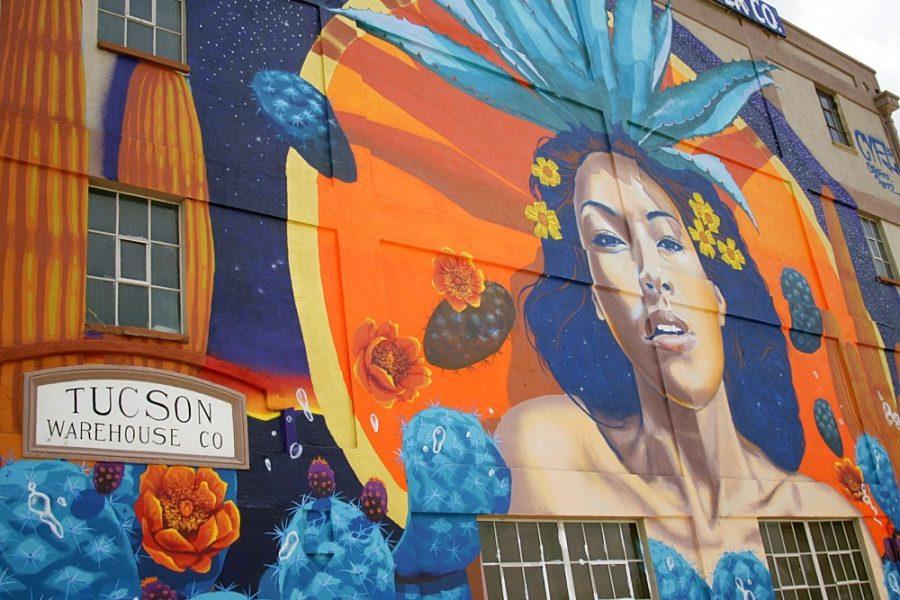In March, President Donald Trump’s first budget plan proposed complete defunding of the National Endowment for the Arts, along with the National Endowment for the Humanities and the Corporation for Public Broadcasting.
Defunding these means taking money from PBS and National Public Radio, as well as thousands of theaters, museums, festivals, galleries and other places for artistic expression.
The NEA is an independent federal agency that provides grants to art organizations across the nation. According to its website, the NEA “supports arts learning, affirms and celebrates America’s rich and diverse cultural heritage and extends its work to promote equal access to the arts in every community across America.” As of FY 2016, the NEA’s budget of $147.9 million dollars is less than 1 percent of the nation’s spending.
One criticism is that the NEA funds programs that are elitist. The NEA addressed this criticism in a FAQs section on their website, stating that 36 percent of NEA grants go to organizations that benefit underserved groups like people with disabilities or veterans. Sixty-five percent of NEA grants go to small and medium-sized organizations with small budgets. The ultimate purpose of the NEA is to provide access to the arts to areas which wouldn’t otherwise have the opportunity.
RELATED: Build benches not borders
Congress will write the official budget, so it is possible that Trump’s cuts will not be fulfilled. It is also possible that not every nonprofit arts organization will be directly affected. However, there has been outrage by some at the Trump administration for its decision to cut funding for the arts.
The Arts Foundation for Tucson and Southern Arizona is a funding agency and provides direct funding and other services to artists and arts organizations in the region, like the Tucson Arts Brigade and The Rogue Theatre. The group would be immediately affected by the NEA cut, as it receives public funding support to then reroute to the region.

According to Julie Lauterbach-Colby, deputy director the Arts Foundation for Tucson and Southern Arizona, the NEA has funded almost $5 million into nonprofit art organizations in Tucson over the past two decades. Lauterbach-Colby said that because each dollar the NEA provides helps leverage another $7 from the community itself, the arts provide close to $35 million in local money.
“I would say that the arts are important in a community because they serve as the very spirit of what that community is—how it moves, how it thinks, how it grows and breathes and sees itself within the larger context of what makes it special,” Lauterbach-Colby said. “The arts give a community a very personal and intrinsic understanding of what it means to be a community.”
Some well-known sights in Tucson are the murals downtown. The Tucson Arts Brigade is one source of these murals and other projects in the area and is one local nonprofit that has been inspired to act by the proposal to defund the NEA.
According to Michael Schwartz, Tucson Arts Brigade president and muralist, the Tucson Arts Brigade receives private donations to fund its projects, and the organization’s funding would not be directly affected by the defunding of the NEA. However, Schwartz said the attitude toward artists is what is troubling to their organization.
The Tucson Arts Brigade has often done projects meant to beautify the space, but now there are plans to take a more political approach.
The Tucson Mural Arts Program has summer plans to create murals about Standing Rock and tribal rights. Some of their future projects include messages about domestic violence, rape culture and the border.
Schwartz said the Tucson Arts Brigade’s donations are notably up from last year. There is overwhelming support in the community for the new projects.
“It’s kind of a metaphor for what is happening around the country,” Schwartz said. “You’re seeing house to house, neighbor to neighbor linking and organizing throughout nation, and we’re going to reclaim our democracy. It’s wild and beautiful. People are in total solidarity. I’ve never seen this in my life. In some ways this could be the best thing that ever happened to the arts.”
RELATED: Local artists illustrate Tucson’s beauty in Dusk Music Festival installations
The Rogue Theatre has been a cornerstone of art and culture in the Tucson community for the last 12 years. According to Cynthia Meier, The Rogue’s managing and associate artistic director, the theater would also be affected by the elimination of the NEA, as it receives funding from the Arts Foundation of Tucson and Southern Arizona and the Arizona Commission on the Arts, another agency that provides funds for arts organizations in the state. Though there has been a small increase of support from private donors in response to the budget proposal, it is not enough to sustain an organization like The Rogue in the long run.

The Rogue often raises important questions with its productions. Past seasons have included productions of “Angels in America” and other pieces of drama that are thought-provoking, controversial and emotional.
“At The Rogue, we end every performance with a discussion about the play we all just experienced,” Meier said. “People are introduced to new ideas and new ways of thinking about things. They sometimes argue with one another about human nature and circumstances. In an age when most of us live in our own information bubbles, these live community conversations are more valuable than ever.”
Meier encourages all citizens to recognize that the arts are essential to every aspect of community life, from economic success to the very life and breath of the community.
“Art—the making of art, the encouragement of art—endures,” Meier said in a recent newsletter. “Our goal at The Rogue is, and always has been, to create a theater that makes us all think deeply about the human spirit, so that we might ultimately become better community-members, better citizens, better people.”
Follow on Breagh Watson on Twitter









